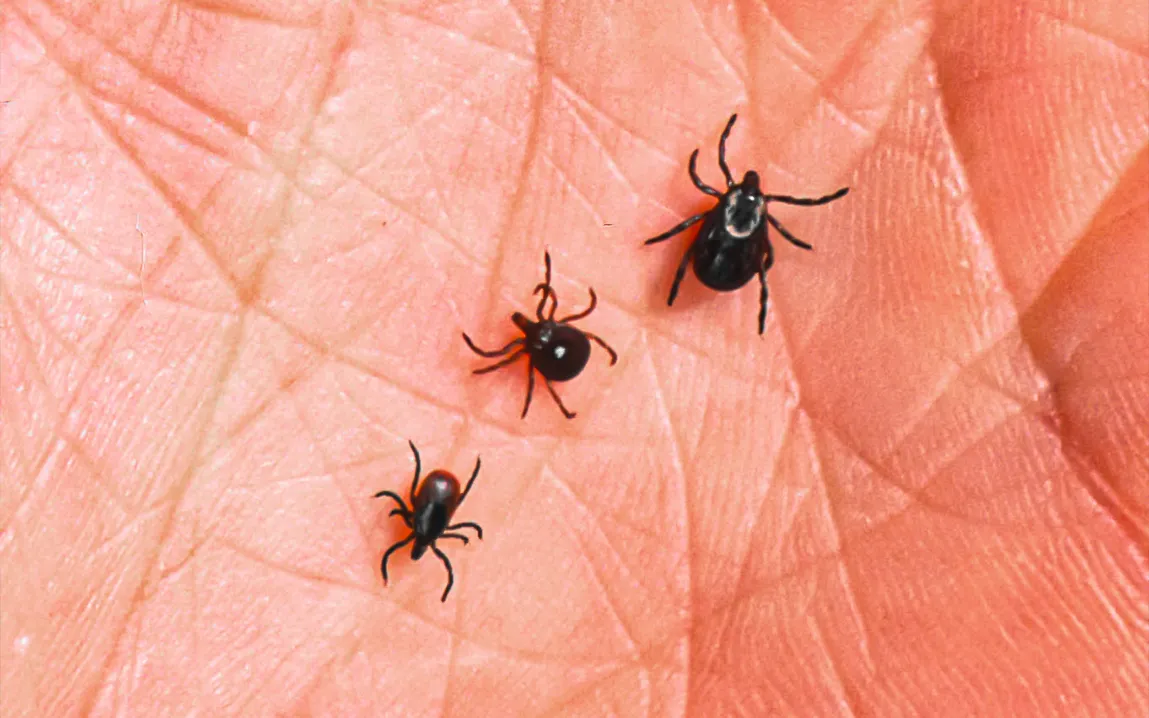For years, a tick bite was simply something that made you scratch until that one specific type of tick, the lone star tick, rose to public consciousness as one of the triggers of red meat allergy among many Americans.
Now, that concern may be growing. Recent data from the Centers for Disease Control and Prevention (CDC) indicates that a different type of threat is expanding into more backyard habitats: blacklegged ticks, more commonly called deer ticks, could also trigger Alpha-Gal Syndrome (AGS), a serious allergy to red meat. It is a disturbing notion for people who thought they didn’t have to worry about the allergy in the Southern states.
Up until recently, the medical field believed the lone star tick was the only culprit behind AGS. But two exhaustive case studies pointed in a different direction.
In Oregon, a 61-year-old woman developed significant allergic reactions to food post consuming beef, pork, and lamb. She was found to have AGS antibodies, a surprise to her doctors, as her tick year was from the western blacklegged tick instead of a lone star tick. Subsequent years of being bitten made her allergic reactions worse.
On the opposite coast, in Maine, a 45-year-old woman developed digestive distress after a hike. She experienced vomiting, stomach cramps, and diarrhea. Her symptoms were connected to a blacklegged tick bite, and she was given a diagnosis of AGS. Their cases confirm what experts had only suspected: that more tick species and a broader range of states are responsible for red meat allergy.
Currently, the CDC is estimating that as many as 450,000 Americans may have been affected by AGS since 2010, and that number could increase, especially in areas that were previously thought to be low-risk.
“We’re finding that this isn’t just a Southern issue anymore,” said Dr. Bobbi Pritt of the Mayo Clinic. “Individuals from the Pacific Northwest, Northeast, and even Midwest are reporting cases of AGS related to different ticks.”Maine, in fact, recently increased their surveillance after discovering 57 people had tested positive for AGS markers between 2014 and 2023.
AGS occurs after a tick bite transmits alpha-gal, an abundant sugar molecule in nearly all red meat, into the bloodstream, prompting the immune system to release antibodies.
In the future, your immune system may have a strong and potentially overzealous reaction to eating red meat, resulting in symptoms including, but not limited to, hives, abdominal discomfort, and, in more serious forms, potentially life-threatening reactions occurring several hours after ingestion. Some patients note that their symptoms decrease over time, but subsequent tick bites may reactivate the syndrome.
Health professionals emphasize that the best way to prevent a red meat allergy is not to be bitten by a tick in the first place. Here are some safety measures: Use EPA-approved insect repellents, long sleeves, and permethrin-treated clothing when in wooded or grassy areas. Shower and check yourself and your children for ticks after outdoor activity.
But don’t forget to check your pets; they bring ticks back into the house! Doctors now recommend that anyone with unexplained reactions to red meat or dairy consider AGS, regardless of location.
“We can’t just ignore it just because it has not been common in that region,” warns CDC epidemiologist Dr. Johanna Salzer. As research grows more robust, one thing is clear: America’s tick problem is becoming more complex, and it’s time we all paid attention.



